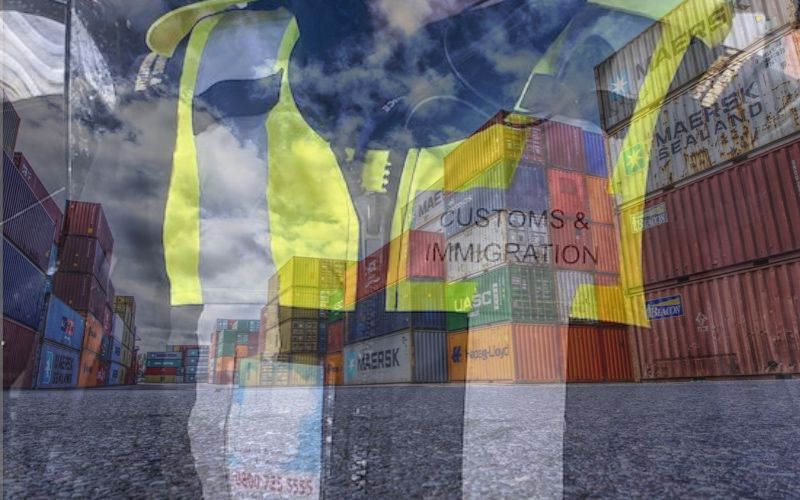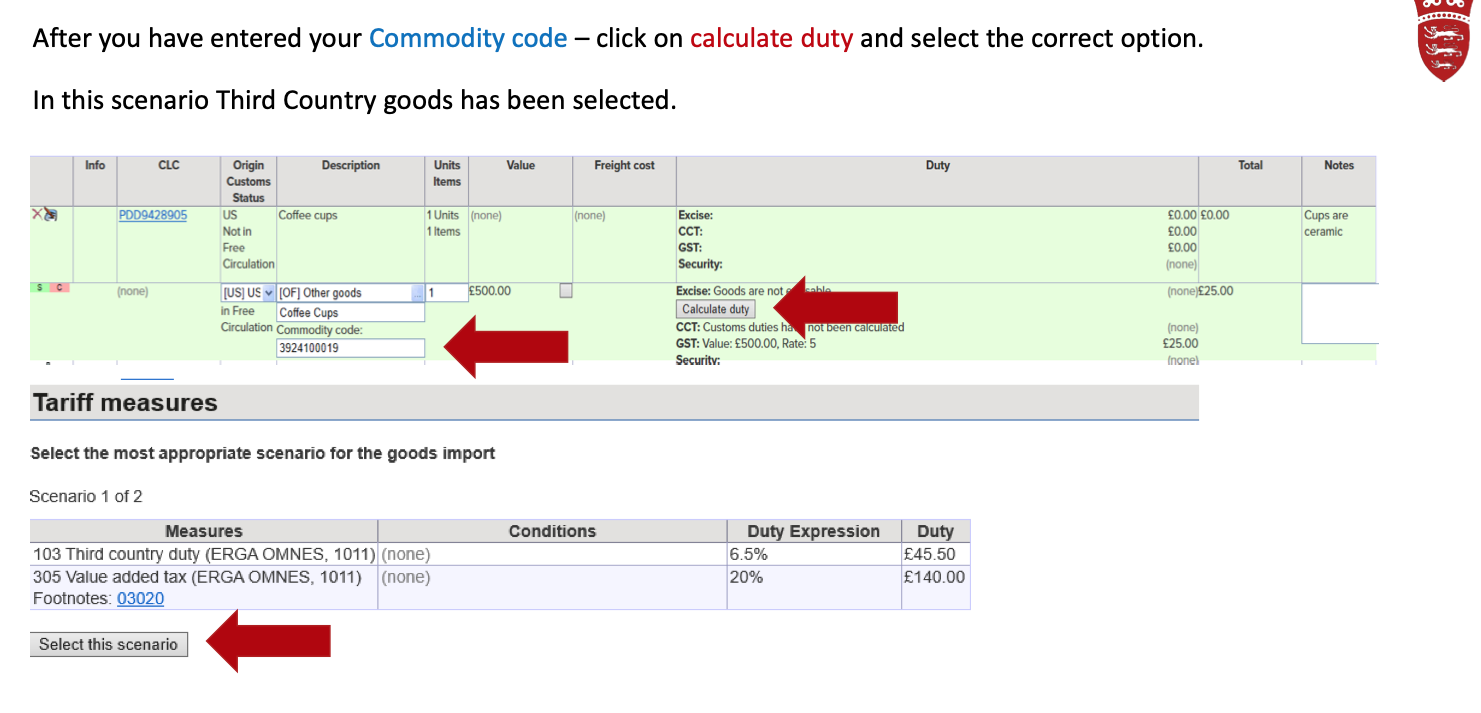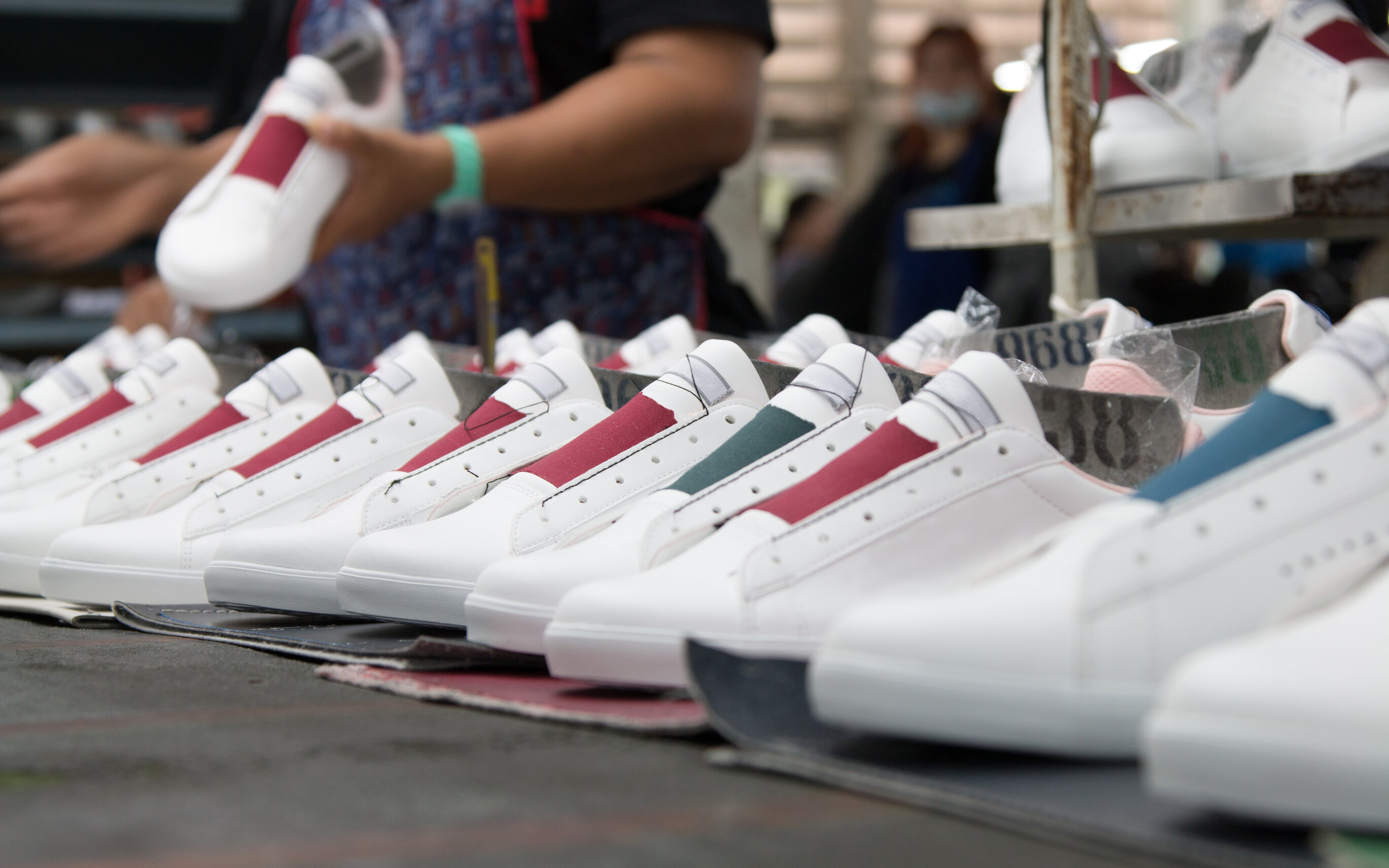


Tariffs in Jersey are being applied fairly, say Customs - although they concede that the burden of paperwork for traders has increased post-Brexit.
The service has responded to local shop owners, who told Express this week that similar businesses in the UK appeared to be escaping paying tariffs on exactly the same items, sourced through the same EU supply channels.
One trader, Stephen Arthurs from sports shop Graeme Le Maistre, said that it seemed Jersey was assiduously applying the letter of the law, whereas the UK was not.
If true, this was unfair, he said. Mr Arthurs added that the extra paperwork was unbelievable.
Mark Cockerham, the Head of Customs and Immigration, said that the new post-Brexit arrangements were complex, and he sympathised with traders, especially as they were also dealing with the impact of covid.

Pictured: Customs has produced a number of guides for importers, to help them pay duties and tariffs.
“We will continue to work with them to ensure we adhere to the requirements of the new Customs Union but also help them navigate their way through,” he said. “I would hope that, as those that import from the EU become familiar with the new procedures, things become easier for them.”
First addressing the issue of extra paperwork, Mr Cockerham said: “The Jersey-UK Customs Arrangement requires us - and the UK, Guernsey and the Isle of Man - to apply the UK’s Global Tariff on goods traded with third countries.
“In practice, this means EU goods are now subject to stricter customs controls and some may attract a tariff. The most obvious change is the legal obligation to submit customs declarations.
“Jersey Customs and Immigration has sought to relieve the burden on business by allowing Customs Approved Traders 30 days after the goods have arrived to submit their declarations and settle any duty liability.
“This easement will remain until the end of the 2021, when declarations will need to be submitted before or on arrival of the goods.
“We recognise the impact this has had on business and are proactively providing support and guidance to help whenever possible.
“Given the complex nature of the new procedures and legal requirements it is recommended that businesses use customs agents to handle border formalities on their behalf. That said, I’m afraid there is no getting away from the fact that Brexit has resulted in more bureaucracy for customs clearance for goods sent from the EU.
“However, the flip side is that most of our imports come from the UK and the Jersey-UK Customs union means that there is frictionless trade in this respect.”
Secondly, Mr Cockerham addressed the apparent disparity between the UK and Jersey applying the terms of the UK-EU trade agreement.

Pictured: An issue for many retailers is the fact that, even if a product is imported from the EU, it may have been made elsewhere. If it is, it may attract a tariff.
“The agreement provides for free trade in relation to goods that originate in the parties to the deal," he explained.
"To benefit from the preference rates, the goods must be accompanied by proof of their origin.
“Duties are liable if proof is not available, however, it may be re-claimed if the business is able to provide proof on origin within three years of import.
“Goods that originate elsewhere in the world but have been cleared into EU free circulation and are then onward shipped to Jersey will be treated as third country goods as per the terms of the Jersey-UK Customs Arrangement.
“Exactly the same rules apply for similar goods that are shipped into the UK from the EU. The UK has not waived the requirement to submit customs declarations and supporting documentation nor have they waived the need to pay customs duties where applicable but they can be done retrospectively until the end of 2021.
“Therefore, local businesses are not disadvantaged because the terms of the trade deal are being applied more stringently here.
“Anecdotal accounts of UK businesses not incurring the same costs need to be considered in the wider context: their supply chains may well differ to those used by Jersey businesses, they may be able to draw on stockpiled stock received prior to 2021 that was not subject to tariffs or they have employed a Customs Agent to ensure the right taxes are paid to the right authorities at the right time.”
Comments
Comments on this story express the views of the commentator only, not Bailiwick Publishing. We are unable to guarantee the accuracy of any of those comments.